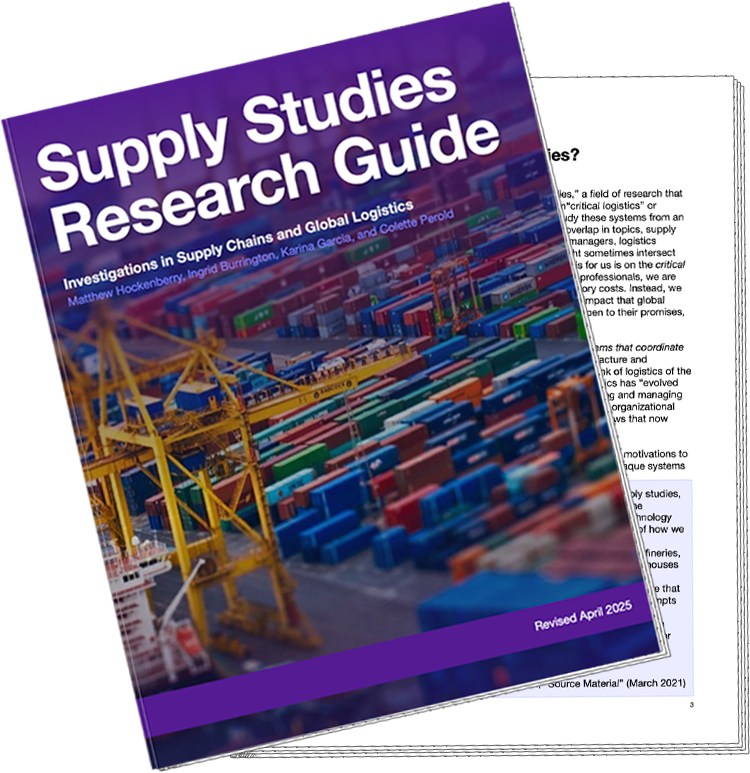The goal of this research guide is to support work in “supply studies,” a field of research that is also known as the critical study of logistics. This is different from “critical logistics” or “critical logistics studies,” which is language sometimes used by those who study these systems from an industry perspective. Despite the similarity in name and the partial overlap in topics, an important part of supply studies is that it is quite different from the work being done by supply chain managers, logistics professionals, and operations researchers. While supply studies might sometimes intersect with supply chain management and its related subfields, the emphasis for us is on the critical study—not the the importance—of logistical systems. Unlike industry professionals, we are not so much interested in optimizing delivery routes or studying inventory costs. Instead, we focus on documenting and analyzing supply chains to understand the impact that global logistics has on the organization of contemporary society. We are still open to their promises, in other words, but we are also well aware of their perils.
Broadly speaking, logistics is the enacting of complex organizational systems that coordinate the movement and transformation of things. Usually this means the manufacture and distribution of commodities. It’s reach is so massive that we could even think of logistics of the “global operating system” for modern society. Chua et al. argue that logistics has “evolved into a wide-ranging science of circulation,” one which is “involved in planning and managing flows of innumerable kinds.” The supply chain is another name we give this organizational system and “wide-ranging science.” It is a model for the sorts of logistical flows that now dominate our sense and experience of contemporary life.
In identifying supply studies as the “critical study of logistics” we follow similar motivations to those outlined by other scholars. That is, that “supply studies” is about making sense of the opaque systems that shape everyday life, identifying the impacts and harms of logistical systems, and documenting the gaps between the potential of these systems and their often problematic realities. The overarching theme of our work, then, is the belief that “the way things work” in the society of the supply chain is rarely an inevitability and never a certainty.
There is another motivation for this work. Most of us who study supply chains are not just interested in documenting supply chains or telling the history of how logistics has shaped modern life. We also want to understand how we can intervene in the operation of these systems. We want a world without devastating consequences for the environment, where workers are given agency and opportunity free from the threat of human rights abuse and economic injustice. By studying supply, we are looking for opportunities to change, challenge, and circumvent the current pattern and practice of logistics in the hope of building a more just future for supply.


